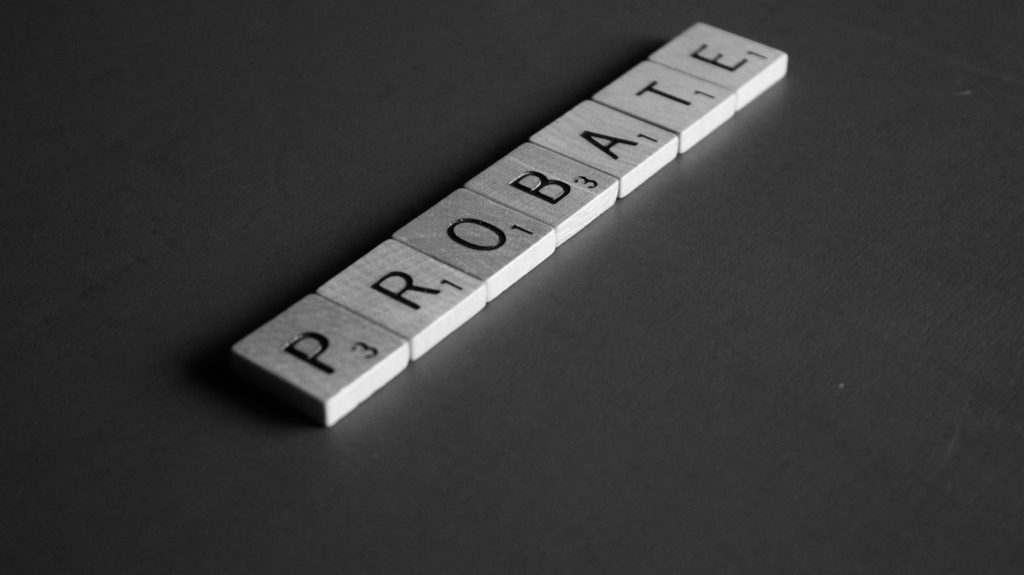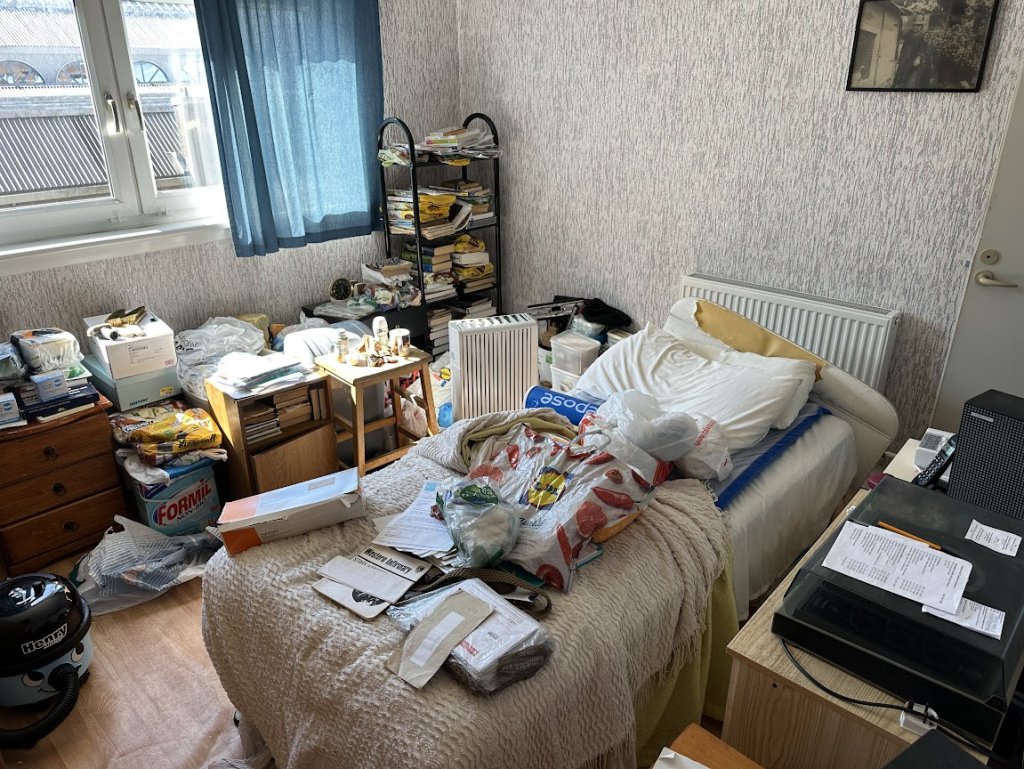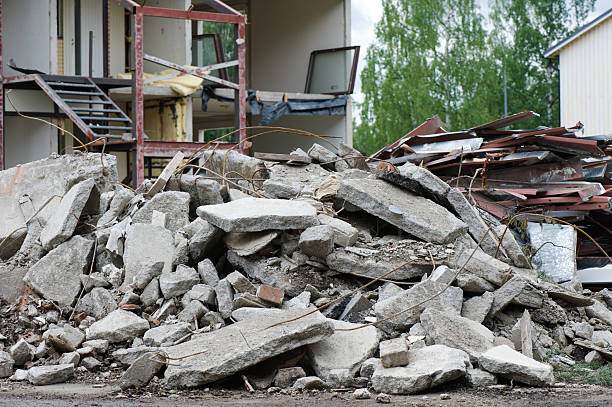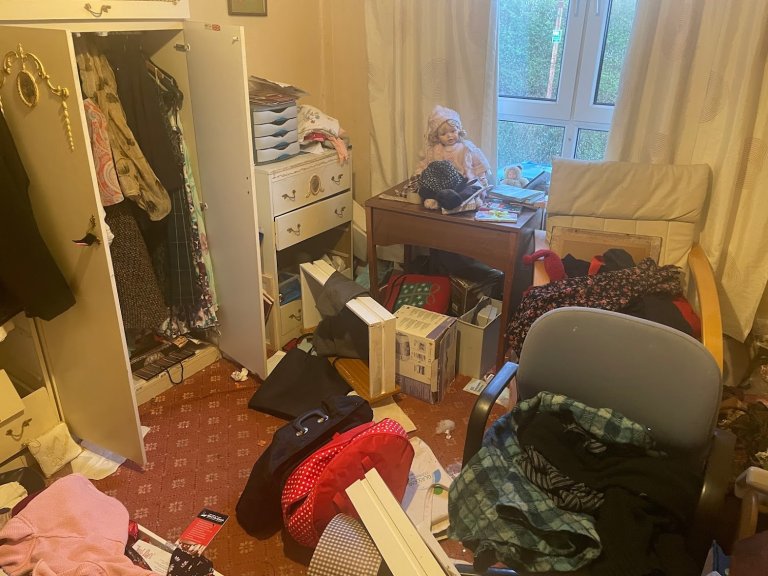Do you have to wait for probate before clearing a house
Do you have to wait for probate when clearing a house after someone’s passing? Many people wonder. Probate can take time, so understandably people desire to settle affairs quickly. This article looks at this common question.
Clearing a house involves legal and logistical steps to divide assets. Usually, the first step is obtaining the grant of probate from the court. This document confirms the executor’s rights to distribute assets according to the deceased person’s wishes or the intestacy laws if there is no will.
In some cases, probate may not be necessary. If the estate consists solely of joint assets or assets held in trust, ownership automatically transfers to surviving joint owners or trust beneficiaries. This way, people can clear property without going through traditional probate proceedings.
For instance, John Smith passed away. He owned his home alone, with no joint owners or trust arrangements. His two children inherited equal shares of his property from his will. But John had made arrangements during his lifetime to transfer ownership directly to his children upon death, using a deed of gift scheme. Therefore, no formal probate was needed before his children could clear and dispose of his belongings from the house.

What is probate?
Probate is the legal process of administering the estate of a deceased person. It involves verifying their will or, if there’s none, distributing assets according to the law. This ensures debts are paid and what is left is given to the right people.
If you must clear a house, probate may be necessary. When someone passes, assets like property and money may have been solely in their name. The court oversees this distribution according to the law.
Probate can take time. It depends on the complexity of the estate and any disputes amongst beneficiaries. It can take months, or even longer.
Loved ones may want to quickly sell the house, but it’s best to wait for probate. There may be creditors or legal issues, and selling early can cause financial loss or other problems. Plus, you risk disregarding the deceased person’s wishes.
It’s important to be patient and wait for probate to finish. Doing so protects yourself, other beneficiaries, and the integrity of the estate.
Understanding the process of probate
Probate can cause delays when it comes to clearing a house, but it is not always necessary to wait for probate before starting this process. Understanding the process of probate is important in order to navigate through it smoothly and efficiently.
When a person passes away, their estate must go through a legal process called probate. This involves proving the validity of the deceased person’s will, identifying and valuing their assets, paying any outstanding debts and taxes, and distributing the remaining assets to the beneficiaries. It is a time-consuming process that can take several months to complete.
However, it is not always necessary to wait for probate before clearing a house. In some cases, the deceased person may have left instructions in their will regarding the immediate disposal of their property. If this is the case, the executor of the will can proceed with clearing the house without having to wait for the probate process to be completed.
Additionally, if the deceased person did not leave a will, the rules of intestacy will apply. In these cases, the next of kin or the appointed administrator can also start the process of clearing the house without waiting for probate. However, it is important to note that the next of kin or the administrator will still need to follow the legal requirements and obtain the necessary permissions before disposing of the assets.
To illustrate the importance of understanding the process of probate, let’s consider a true history. John Smith passed away suddenly, leaving behind a property that needed to be cleared. His grieving family had limited knowledge about the probate process and assumed they needed to wait for probate before clearing the house. As a result, the property remained untouched for several months, causing unnecessary stress and financial burden. Had they sought professional advice or been aware of their rights and options, they could have started the process of clearing the house sooner.
Unraveling the mystery of probate: because clearing a house is like untangling a web of legal red tape, one dusty lampshade at a time.
Steps involved in probate
Probate is a legal process involving distribution of a deceased person’s estate. To better understand it, we can divide it into four stages:
- Identifying and Gathering Assets: This includes properties, investments, bank accounts and personal belongings. It’s important to have a comprehensive list, so nothing is missed.
- Valuation and Assessment of Estate: This involves appraising properties, obtaining valuations for investments and assessing worth of personal items. This is essential for determining inheritance tax liabilities and fair distribution among beneficiaries.
- Payment of Debts and Taxes: Before distributing the estate, any outstanding debts or taxes must be paid. This includes funeral costs, bills, mortgage payments and inheritance tax liabilities.
- Distribution of Estate: This involves transferring ownership of properties, dividing monetary assets among beneficiaries and ensuring everyone gets their share.
It’s worth noting, probate is a lengthy and complex process, often needing professional help from solicitors or probate specialists. In addition, it can involve disputes among family members or other parties claiming rights to the estate. Reports show that due to changing family dynamics and increased property values, such inheritance disputes have increased in recent years.
Filing a petition for probate
Filing a petition for probate is the first step in handling a deceased person’s estate. It involves submitting an application to the court to validate their will. This step can be intimidating, but with a plan, it can be done. Here’s a guide to filing a petition for probate:
Gather documents: Collect all necessary paperwork, like the original will, death certificate, and additional data.
Write the petition: Put together a formal document expressing your desire to probate the will and give information about the deceased’s estate.
File the petition: Submit the completed petition to the right court, plus pay any fees. Make sure to meet all deadlines and requirements.
Tell interested parties: Notify all beneficiaries and potential heirs named in the will about your plan to probate. This gives them a chance to contest or bring up issues about its validity.
Attend the hearing: If your petition is filed, you may have to go to a hearing to show evidence that it is valid. The court may also address any objections during this session.
Get letters of testamentary/administration: If your petition is accepted, you will receive official documents giving you control over managing and distributing assets in the estate.
Each case can be different and may require more steps or thought depending on its complexity.
It’s important to remember that filing a petition for probate has a long history. English courts first acknowledged their authority over deceased people’s assets centuries ago. Now, while the process has changed a lot, its goal is still important—to make sure estates are handled according to the law and guard the rights of all involved.
Knowing how to file a petition for probate is essential for anyone responsible for managing the affairs of a deceased loved one. By following these steps and learning about the process, you can go through this initial stage with more confidence and ease.
Notifying creditors and beneficiaries
Notifying creditors and beneficiaries is a must-do in probate. You need to tell relevant people about the deceased’s assets and debts. Here are 4 key points to keep in mind:
- Creditors: Send a formal notification letter to all known creditors about the death. Include the date of death and how to submit claims. This is important to ensure debts are paid.
- Beneficiaries: Tell those mentioned in the will about their inheritance rights. Send them a notice with entitlements and instructions on what they need to do. This maintains fairness.
- Unknown Creditors: In some cases, creditors may be unknown or hard to find. To reduce risk, publish a notice in local newspapers or online. This allows possible creditors to come forward in time.
- Executor’s Responsibility: The executor must inform both creditors and beneficiaries. It is important to keep records of all communication, including letters, emails, and advertisements. This strengthens the process and helps resolve any disputes.
Pro Tip: Seek legal advice to help meet legal requirements and deadlines. A solicitor can assist with the entire probate process.
In summary, probate requires notifying creditors and beneficiaries. By doing this, you meet legal requirements and ensure the deceased’s assets go to the right people.
Inventory and appraisal of assets
It is key to comprehend the process of probate for settling a dead person’s assets and liabilities. An essential step is the inventory and appraisal of assets. This involves enumerating all the deceased individual’s possessions, evaluating them and recording them.
We can give an example of inventory and appraisal with a table:
| Asset Type | Description | Value (£) |
|---|---|---|
| Real Estate | House in London | £500,000 |
| Investments | Stocks and shares | £300,000 |
| Bank Accounts | Current Account | £20,000 |
| Savings Account | £50,000 | |
| Fixed Deposits | £100,000 | |
| Vehicles | Car – Mercedes Benz | £30,000 |
| Personal Belongings | Jewellery (Gold necklace) | £10,000 |
For a successful inventory and appraisal process, these are a few tips:
- Get professional aid: Engage a proficient appraiser or valuer to guarantee precise evaluations of diverse assets. Their skill provides a neutral valuation.
- Collect necessary papers: Gather all significant documents related to the assets, such as property deeds, investment statements, bank statements, vehicle registration documents, and receipts for personal belongings. This contributes to exact valuation.
- Think about exceptional items: Recognize any special or valuable items that may need specialized appraisers such as art pieces or rare collectibles. Appraisers with domain knowledge can give exact valuations for these assets.
Sticking to these tips will make the inventory and appraisal process simpler, guaranteeing equitable distribution of assets and obeying legal obligations.
Paying debts and taxes
Paying debts and taxes is a pivotal part of the probate process. It calls for settling any outstanding dues, as well as fulfilling tax duties of the deceased.
- Outstanding debts must be identified and paid using the assets of the estate.
- Creditors must be told about the process, enabling them to make claims if needed.
- Income tax and inheritance tax must be calculated and paid.
It is noteworthy that paying debts and taxes can significantly affect the division of assets. Thus, it’s important to consider fairness and legality.
Moreover, it’s essential to seek professional advice from accountants or lawyers experienced in probate issues. They can help you navigate through complex financial obligations.
Recently, a family was stunned to discover their late relative’s credit card debt. As they went through probate, they had to use a portion of the estate’s assets to pay off the debt and distribute the rest to the beneficiaries.
This story highlights the significance of carefully examining any potential debts or taxes owed by the deceased. If not, it can lead to unexpected financial burdens and complexities during probate procedures.
Distributing assets to beneficiaries
When it comes to probate, one key step is to distribute assets to beneficiaries. This involves transferring the deceased’s stuff and property to those entitled to receive them. Here’s an outline of how to do it:
- Identify beneficiaries: First, you must figure out who the beneficiaries are. This info can be in the will or through intestacy laws if there was no will.
- Gather assets: Once you know who the beneficiaries are, you need to gather all the assets that must be distributed. This includes real estate, bank accounts, investments, and personal belongings.
- Valuation + inventory: Before giving out the assets, you must figure out their value and create an inventory. This ensures each beneficiary receives their fair share and helps avoid disputes in the future.
- Transfer assets: Finally, the assets can be transferred to the beneficiaries according to the instructions in the will or intestacy laws. This could involve changing ownership for real estate or updating account info for financial assets.
Probate cases may have extra considerations depending on factors like debts or tax liabilities. For example, once there was a complicated probate case with multiple people claiming entitlement as beneficiaries of a valuable estate. Through legal processes, it was determined who the rightful beneficiaries were, so everyone received what they were owed from the estate. This case showed how essential proper documentation and following legal processes are when distributing assets during probate.

Can you clear a house before probate?
When a loved one passes away, there are many important tasks to take care of, including clearing their house. However, the process of clearing a house before probate can be complicated and it’s essential to understand the legalities involved.
Probate is the legal process of administering a deceased person’s estate, and it typically involves the validation of their will and the distribution of their assets. Before probate is granted, it is generally advisable to avoid making any major decisions regarding the deceased person’s property, including clearing the house.
During the probate process, the deceased person’s assets are assessed, and any outstanding debts or taxes are settled. Only once this is complete, can the executors of the will distribute the remaining assets to the beneficiaries. Clearing a house before probate can potentially interfere with this process and cause unnecessary complications.
However, there are some exceptions to this rule. If the value of the assets in the house is low or there is an urgent need to clear the property for safety or health reasons, it may be possible to seek permission from the court to clear the house before probate. This decision will ultimately depend on the specific circumstances and the discretion of the court.
It is crucial to seek professional advice from a solicitor who specializes in probate matters to navigate through this process smoothly. They can provide guidance and ensure that you are following the correct legal procedures. By waiting for probate before clearing a house, you can avoid potential legal issues and ensure that the deceased person’s estate is properly administered.
Don’t let the fear of missing out on clearing the house too soon overshadow the importance of following the correct legal procedures. By waiting for probate, you can have peace of mind knowing that you are handling the deceased person’s estate in the proper way and avoiding any unnecessary complications. Seek professional advice and be patient during this process to ensure a smooth transition.
Legal considerations: Clearing a house without probate is like robbing a bank without facing any consequences – not recommended, but it does make for an interesting story.
Legal considerations
- Protect the will of the deceased at all times.
- Get advice from a probate lawyer or solicitor.
- Get documents, like Grants of Probate or Letters of Administration. These let you act as executor or administrator.
- Be aware of special circumstances of the estate.
- Joint owners or beneficiaries may need consent or involvement.
- Take photos or make inventories of valuable items. This can help stop disputes when doing probate.
State laws on probate and estate administration
Each state has its own laws concerning probate and estate administration. Knowing these is key for the sharing of assets after someone dies. For instance, some states have the Uniform Probate Code with standard rules. Usually, an executor or personal representative manages the probate process to make sure everything follows the law.
It is noteworthy that state laws on probate and estate administration are distinct from each other. Therefore, it is wise to talk to a lawyer or legal specialist familiar with the laws in your area.
Probate goes way back. For example, when Henry VIII of England died in 1547, his wealth caused inheritance disputes among his heirs. This led to court cases and eventually shaped England’s early probate laws.
Any existing will or estate plan
An estate plan is important for sorting out a house before probate. It has directions for asset distribution and names an executor to manage it. Key elements in an estate plan include:
- Executor: Person who administers the estate. They have permission to handle and share assets, including the house.
- Beneficiaries: People or organizations in the will who get particular assets – like the house.
- Specific bequests: Guidelines about the house (give to someone, or sell and divide proceeds).
- Residuary clause: Deals with assets not mentioned in the will, including after-creation assets. It can affect how a house is cleared before probate.
To clear a house according to an estate plan:
- Get help: Talk to a lawyer or probate expert for advice on legal steps and carrying out the deceased’s wishes.
- Inform beneficiaries: Let them know their rights for the house and involve them in decisions.
- Gather documents: Collect things like land titles, mortgages, insurance policies and contracts.
- Value & inventory: Have trained professionals value the house and list its contents before doing any distribution.
- Cooperate with executor: Work together to follow legal duties, keep communication clear, and be open.
By following these tips, you can assure the house is cleared properly, making probate smoother and fulfilling the deceased’s wishes.
The option of selling or clearing a house before probate
The option of selling or clearing a house before probate is possible, but there are specific steps that need to be followed. Firstly, it is important to consult with a legal professional who specializes in probate to ensure that all legal requirements are met.
- Selling the house before probate: It is possible to sell a house before probate is granted, but this can only be done if the executor has the power to do so. The executor will need to obtain a grant of representation, such as a Grant of Probate, which gives them the authority to deal with the deceased person’s estate. Once this grant is obtained, the executor can proceed with selling the house. However, it is important to note that potential buyers may be cautious about purchasing a property that is not yet in probate, so it may be necessary to price the house accordingly or provide certain guarantees.
- Clearing the house before probate: Clearing a house before probate can also be an option, but it requires careful consideration. The executor will need to go through the deceased person’s belongings and determine what should be kept, sold, or donated. It is important to keep detailed records of any sales or donations to ensure that everything is accounted for. Additionally, if there are valuable assets or sentimental items, it is crucial to have them properly appraised or evaluated to avoid any disputes among beneficiaries.
- Legal obligations: Regardless of whether the house is sold or cleared before probate, the executor has certain legal obligations. These include ensuring that the deceased person’s debts are paid, distributing the estate according to the deceased person’s will or the laws of intestacy, and keeping accurate records of all financial transactions. It is important for the executor to seek legal advice throughout the process to ensure they fulfill these obligations correctly.
- Beneficiaries’ consent: It is also important to consider the potential impact on beneficiaries. Selling or clearing a house before probate without consulting beneficiaries may lead to disputes or challenges to the executor’s actions. It is advisable to keep beneficiaries informed and obtain their consent where necessary.
In addition to these points, it is worth noting that the process of selling or clearing a house before probate can vary depending on the specific circumstances and the laws of the jurisdiction. It is always recommended to consult with a legal professional for guidance tailored to the individual situation.
A true story: I recently assisted a friend who was named as the executor of her late mother’s estate. She decided to sell the house before probate as it was vacant and maintaining it would have been costly. With the help of a probate lawyer, she obtained the necessary grant of representation and found a buyer. The sale was completed smoothly, and the proceeds were used to settle the outstanding debts of the estate. Selling the house before probate saved time and money, allowing her to distribute the remaining assets to the beneficiaries more efficiently.
Waiting for probate: pro – you have more time to ponder over forgotten family secrets; con – you develop an intimate relationship with cobwebs in the attic.
Pros and cons of waiting for probate
When it comes to deciding whether to wait for probate or sell/clear a house, there are several advantages and disadvantages to consider.
- Waiting for probate gives time to settle debts and liabilities.
- It also allows beneficiaries to assess the market and potentially get more money for the property.
- Plus, it can provide emotional closure for family.
But, there are downsides too.
- Delays in probate can cause extra costs like maintenance and legal fees.
- It might mean missing out on a hot real estate market.
- And, if beneficiaries can’t agree, tensions can rise.
Weighing up the pros and cons is key. It’s about what fits individual circumstances. Don’t let FOMO sway the decision, but think through all aspects first. Get help from pros for complex decisions.
Pros and cons of clearing a house before probate
Considering selling or clearing your house before probate? Before deciding, weigh the pros and cons.
Pros include:
- Faster asset distribution to beneficiaries
- No probate court hassles
- No maintenance costs or property taxes
- Chance to get a higher sale price
Cons:
- Less ability to negotiate a higher sale price
- Capital gains tax implications
- Disputes between beneficiaries
- Potential legal complications
Furthermore, look into sentimental value, location, and market conditions. Professional advice can help you decide.
Sarah had to make a tough call when her grandmother passed away. She had to sell her childhood home before probate. Despite the sentiment, she thought it best to clear the house quickly. This allowed for fast asset distribution among family members, and spared them of any maintenance costs.
Tips for clearing a house before probate
Clearing a house for probate can seem like a big task, but with the right tips it can be done easily. Here’s a 4-step guide:
- Assess what’s there: Divide items into 3 groups – keep, donate/sell, and throw away. Note any valuable assets and get appraisals if needed.
- Set up logistics: Get a storage unit or removal company to move items you’re keeping or selling/donating. Tell banks, insurance companies, and utility providers about the situation. Update mail addresses too.
- Check the law: Talk to an estate lawyer to make sure you’re following the law. Get permits or clearances if needed.
- Call in help: Hire people like estate agents, auctioneers, or house clearance services to help you sell or dispose of items.
Also, keep everyone in the loop – notify beneficiaries about your actions to avoid problems during probate proceedings.
Finally, a fact from The National Association of Estate Agents: “Clearing a house before probate can help speed up the probate process.”
Conclusion
Lastly, don’t delay when cleaning out a house. Abide by the laws set forth by local authorities. No waiting for probate necessary!
Frequently Asked Questions
FAQ 1:
Do I have to wait for probate before clearing a house?
No, you don’t have to wait for probate before clearing a house. However, it is advisable to consult with a solicitor or an executor to ensure you follow the correct legal procedures.
FAQ 2:
What is probate?
Probate is the legal process that validates a will and gives the executor the authority to administer the estate of a deceased person.
FAQ 3:
Can I clear a house before probate is granted?
Yes, you can clear a house before probate is granted. However, it is essential to consult with a professional to understand your legal obligations and avoid any potential complications.
FAQ 4:
What happens if I clear a house before probate?
If you clear a house before probate is granted, there may be legal consequences. It is crucial to seek advice from a solicitor to ensure you comply with the law and protect the interests of the deceased person’s estate.
FAQ 5:
Can I sell items from a house before probate?
Selling items from a house before probate can be done, but it is advisable to seek professional advice to ensure you follow the necessary legal procedures and avoid any potential disputes.
FAQ 6:
Who is responsible for clearing a house after someone dies?
The responsibility for clearing a house after someone dies usually falls on the executor or administrator of the deceased person’s estate. They are entrusted with managing the deceased person’s assets and ensuring all legal obligations are fulfilled.







